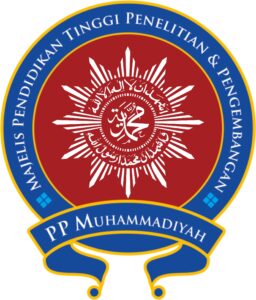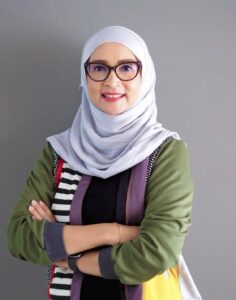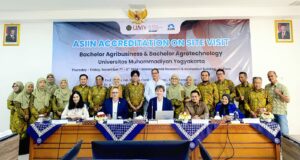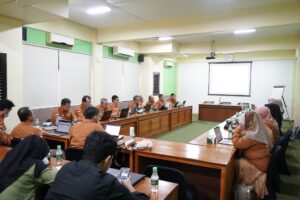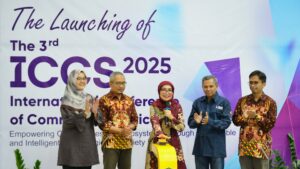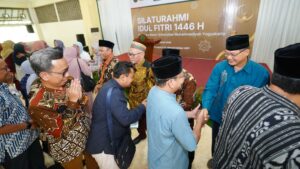 Two UMY lecturers, Nasrullah, S.H., S.Ag., MCL. and Dr. M. Khaeruddin Hamsin assisted by Waridatun Nida, S.H., held community service in the form of counseling for waqf nadzir in Kasihan Bantul District on Sunday (7/26). According to Nasrullah, the activity which partnered with the Head of Muhammadiyah Kasihan Branch was intended to increase their nadzir’s insights and knowledge of his duties and functions in managing the mandate of waqf assets in accordance with the provisions of fiqh or waqf laws and regulations. The counseling themed “Optimizing the Role of Nadzir in Improving the Function of Waqf in Kasihan District” was held in the Meeting Room of the Faculty of Law of UMY and continued to implement the Covid-19 prevention protocol, using masks and spacing of seating. This activity was attended by 17 representatives of nadzir from 4 villages in Kasihan Subdistrict, and included both individuals and organizations or legal entities.
Two UMY lecturers, Nasrullah, S.H., S.Ag., MCL. and Dr. M. Khaeruddin Hamsin assisted by Waridatun Nida, S.H., held community service in the form of counseling for waqf nadzir in Kasihan Bantul District on Sunday (7/26). According to Nasrullah, the activity which partnered with the Head of Muhammadiyah Kasihan Branch was intended to increase their nadzir’s insights and knowledge of his duties and functions in managing the mandate of waqf assets in accordance with the provisions of fiqh or waqf laws and regulations. The counseling themed “Optimizing the Role of Nadzir in Improving the Function of Waqf in Kasihan District” was held in the Meeting Room of the Faculty of Law of UMY and continued to implement the Covid-19 prevention protocol, using masks and spacing of seating. This activity was attended by 17 representatives of nadzir from 4 villages in Kasihan Subdistrict, and included both individuals and organizations or legal entities.
Three presenters were presented in this counseling, namely Dr. M. Khaeruddin Hamsin as a member of the DIY MUI Fatwa Commission and Deputy Chairman of Muhammadiyah Central Board the Tarjih and Tajdid Assembly, Rohwan S.Ag., MSI Chairperson of BWI Bantul and Head of KUA / PPAIW of Kasihan District, and Ustadz Muhammad Jazir ASP. In his presentation of material, Khaeruddin Hamsin said that in the fiqh perspective, the management of waqf was oriented to the benefit of waqf property. “So that if an asset is no longer productive or neglected, it can be exchanged or moved to other, more productive places. By continuing to follow the procedures of Law No. 41 of 2004 concerning Representation,” he explained.
Meanwhile, Ustadz Muhammad Jazir ASP, Chairperson of the Takmir Syura Board of the Jogokariyan Mosque shared his experience on how he successfully managed the Jogokariyan Mosque from humble beginnings to become a model for managing waqf assets that are not only productive but also progressive. “Jogokariyan Mosque underwent three phases of development, starting with subsidized members that developed into independent members. Now, it is an independent mosque with various business units that are not only able to meet the mosque’s operational costs, but are also able to improve the welfare of the congregation,” said Ustadz Jazir.
The results of this counseling showed a very significant increase in participants’ insights from initially only reaching an accuracy rate of 35 percent in the pre-test to 77 percent in the post-test. In addition to the pre-test and post-test, an tallying of problems faced by the nadzir in managing waqf assets in Kasihan District was also carried out as well as a discussion about the post-extension action plan. Most of the problems faced by the nadzir are related to legality (waqf certificate), funding, lack of nadzir knowledge, and manual management. As a follow-up plan, the nadzir hoped UMY can assist them in managing waqf assets and help the nadzir with problems of managing and resolving the legality of waqf assets recognized by Rohwan. Some participants also hoped that in the future the community service would be able to present the Land Agency, so that the nadzir could understand the solutions to the obstacles in managing the waqf land certification that they often face.
